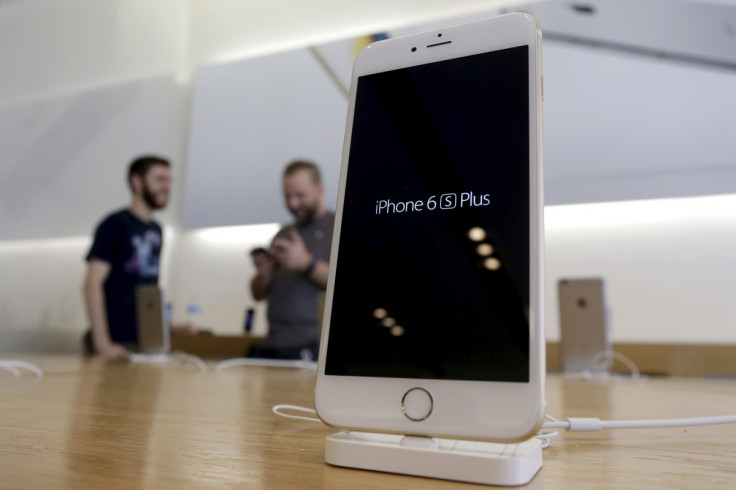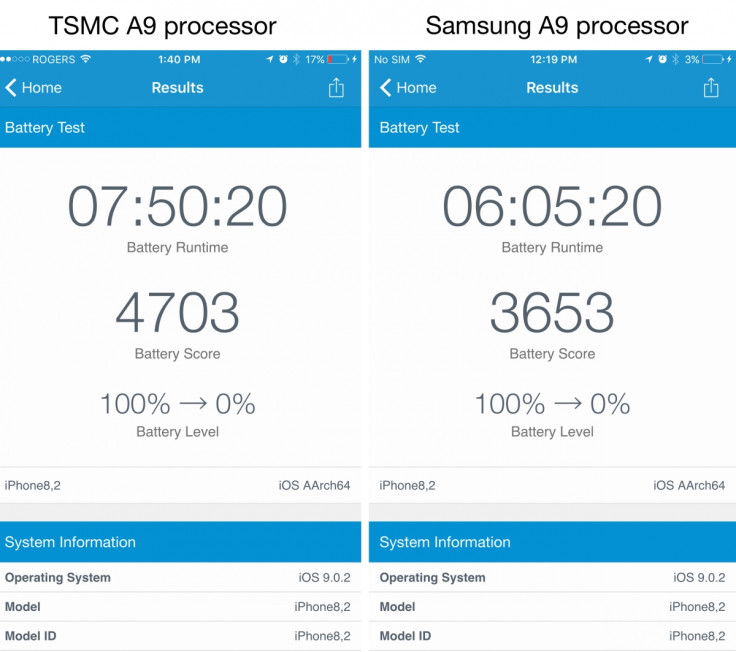iPhone 6s battery 'shortened by two hours' depending on which processor fitted

UPDATE: Apple has released a statement claiming the actual difference in battery life between the two processors is 2-3%:
"With the Apple-designed A9 chip in your iPhone 6s or iPhone 6s Plus, you are getting the most advanced smartphone chip in the world. Every chip we ship meets Apple's highest standards for providing incredible performance and deliver great battery life, regardless of iPhone 6s capacity, color, or model. Certain manufactured lab tests which run the processors with a continuous heavy workload until the battery depletes are not representative of real-world usage, since they spend an unrealistic amount of time at the highest CPU performance state. It's a misleading way to measure real-world battery life. Our testing and customer data show the actual battery life of the iPhone 6s and iPhone 6s Plus, even taking into account variable component differences, vary within just 2-3% of each other."
Original story:
To satisfy heavy demand Apple has used two different manufacturers to produce the A9 processor of the iPhone 6s and 6s Plus. Both processors produce similar performance, but users have found battery life to differ by as much as two hours between two otherwise identical handsets.
The A9 processor is produced by both Samsung and Taiwanese company TSMC. Early adopters of the iPhone 6s and 6s Plus have posted on forums about their disappointment in receiving handsets with the Samsung chip. A customer with both phones posts results of a battery test showing a difference of almost two hours.

Reddit user 'raydizzle' posted to say they had run the GeekBench battery test application on an iPhone 6s Plus with the Samsung chip, and one with the TSMC chip. The former went from 100% to zero in six hours and five minutes, while the latter survived for seven hours and 50 minutes. Users also posted on the MacRumors forums about the difference in battery life between the two chips, with many asking if they should return their Samsung-powered iPhone to Apple, in the hope of receiving a TSMC replacement.
Physical difference between the two processors are tiny − a greater transistor width makes the TSMC chip 8.5 square millimeters larger; it has been suggested that even this small increase in size could result in improved heat management, a lower temperature and improved battery life, although this is hard to verify as a direct cause.
An application called Lirum Device Info, available for free from the iOS App Store, can help owners work out which processor their iPhone 6s is using. The Samsung chip is identified as N66AP or N71Ap, while TSMC's is called N66MAP or N71MAP, according to The Guardian.
It isn't clear if the Samsung and TSMC processors are split evenly across Apple's stock, or if there are patterns in how they are used by iPhones sold in certain countries or through certain networks.
© Copyright IBTimes 2025. All rights reserved.






















